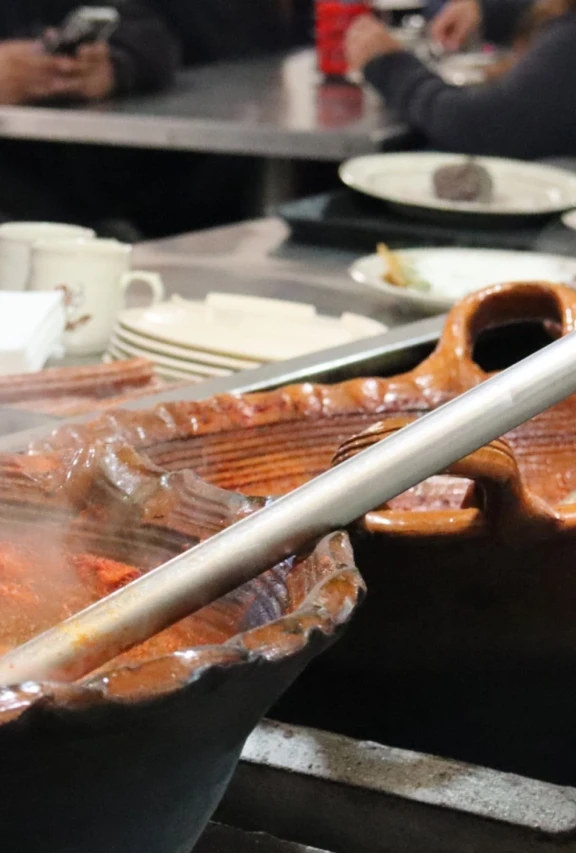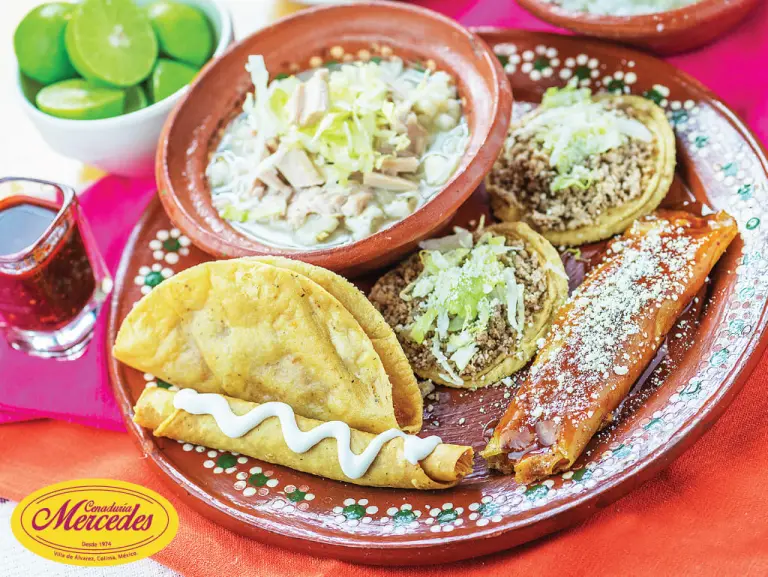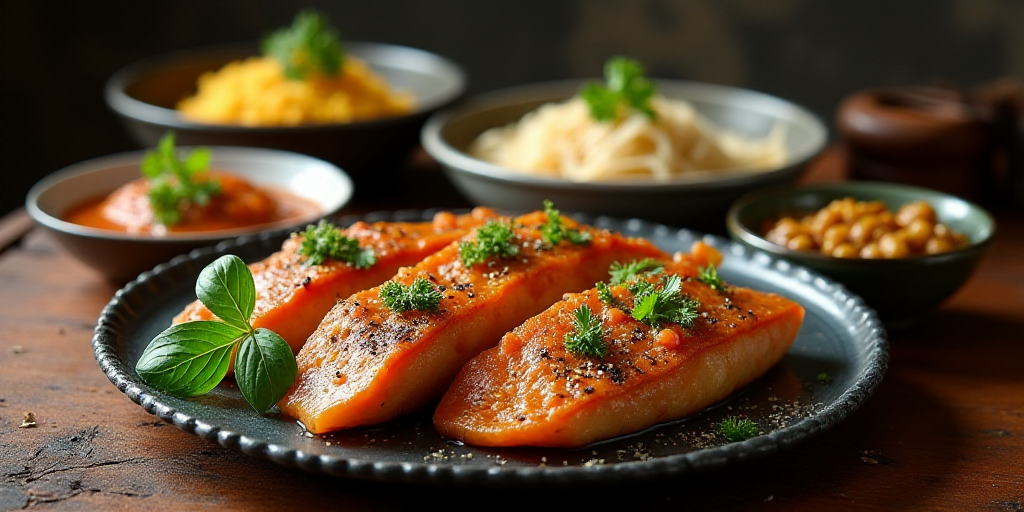The Historical Roots of Fondas and Cenadurías
The term “fonda” has a traveling lineage, originating from the Italian “fonda,” which in turn derives from the Arabic “funduq.” This word was used to describe inns and stores where merchants found refuge and food along Mediterranean routes. During the colonial American era, the fonda became a simple lodging that offered home-cooked meals and affordable accommodation for travelers and drovers. However, in Mexico, the concept evolved purely into a culinary one, losing its housing aspect and becoming a popular space serving daily menus with generous portions, home-style flavors, and affordable prices.
From the 19th century onwards and throughout the 20th, Mexican fondas became democratic eateries where workers, office workers, and entire families found the taste of home outside their own kitchens. Their essence remains in personalized service, inherited seasoning, and the promise of hearty meals without excessive spending.
Fonda Margarita: A Legend in Mexico City’s Culinary Scene
If there is one fonda that has become a living legend in Mexico City’s popular gastronomy, it is Fonda Margarita. Located in the Del Valle neighborhood, it’s famous for opening its doors at five in the morning to serve those seeking a hearty and authentic breakfast before starting their day.
For decades, Fonda Margarita has been cooking dishes like frijol con huevo, enchilada de seso, chicharrón in green salsa, and suadero in tomato sauce in large pots. All are prepared with the traditional seasoning and served with freshly made tortillas. The place is modest, with long communal tables where strangers become breakfast companions.
Cenadurías: The Mexican Night Served on a Plate
Cenadurías are a genuinely Mexican concept that solidified in the 19th century, especially in central and northern cities. Their name refers to their primary function: serving cena or dinner. They open in late afternoon and nighttime hours to offer antojitos (small snacks) and traditional dishes intended for closing the day. Cenadurías are places where neighborhoods gather after work to share enchiladas, sopes, tacos dorados, tamales, atoles, and broths, creating a family-like and communal atmosphere.

Fonda Margarita
Iconic Cenadurías in Mexico City
In Querétaro, Cenaduría Blas, founded by Blas Pérez in 1940, has over 70 years of history serving hundreds of diners daily. Its broken corn tortillas, golden potato taquitos, grilled meat or carne, beans, tripe, and its unparalleled roasted quail are part of a generous and authentic menu now managed by the third generation of the family.
In Colima, Cenaduría Mercedes has been a favorite for generations. With over 40 years of history, it’s renowned as the most recognized in the state due to its extensive antojito (small snack) repertoire: pozole, dry pozole tostadas, sopes, sweet enchiladas, golden tacos, chicken flautas, shoulder patties sopes, atole de leche, and carne or picadillo tamales.

Cenaduría Mercedes
In Mazatlán, Sinaloa, Cenaduría Tachita is a classic to end the day satisfied and content. Famous for its traditional beef roast, as well as tostadas, tacos, and pozole, Tachita is the preferred choice of locals and visitors seeking to close the night with the intense, comforting flavors of Sinaloa’s cuisine. Its simple and family-like atmosphere reminds us that good food doesn’t need more than seasoning and care.
Tradition, Memory, and Popular Culture
According to INEGI data, Mexico has over 500,000 food and beverage preparation establishments, a significant portion of which operate under the fonda or cenaduría model. These spaces are sustainable by nature, valuing whole-ingredient use and seasonality, representing a living cultural heritage passed down through generations.
A Journey Through Mexico’s Iconic Fondas and Cenadurías
Exploring Mexico’s emblematic fondas and cenadurías offers a glimpse into the country’s rich culinary traditions, each with its unique story and contribution to Mexico’s vibrant food culture.
Key Emblematic Cenadurías in Mexico
- Cenaduría Blas (Querétaro): Known for its broken corn tortillas, golden potato taquitos, and traditional dishes passed down through three generations.
- Cenaduría Mercedes (Colima): Famous for its extensive antojito menu, including pozole, dry pozole tostadas, sweet enchiladas, golden tacos, and atole de leche.
- Cenaduría Tachita (Mazatlán, Sinaloa): Celebrated for its traditional beef roast, tostadas, tacos, and pozole, offering a taste of Sinaloa’s hearty cuisine.






